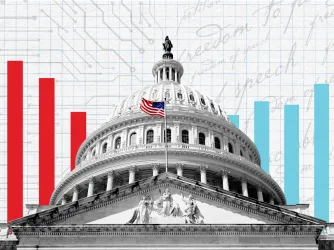Table of Contents
An open letter to Clemson University
Dear Clemson:
Today, I write to you in regards to an issue of the most supreme efficacy. You see, we as a University, residing in one of the last refuges of individual liberty-the great state of South Carolina-have an obligation to uphold the virtues of this legacy. While other states fall prey to progressive measures at their institutions of learning in hopes of achieving a better public image and creating an air of political correctness, Clemson University has displayed immunity from such a plague of despotism. Therefore, take this letter not as an attack on the University itself, but more as a prescription for becoming something more than just a name on a list.
"Academic institutions exist for the transmission of knowledge, the pursuit of truth, the development of students, and the general well being of society," states Clemson's mission statement. However, it immediately states: "Free inquiry and free expression are indispensable to the attainment of these goals." Such a concept as this is oft stated, and even more often ignored. It is this pursuit of truth utilizing the natural right of free expression that is currently being strangled at our prestigious University through specific University policies.
On my first tour of the University during my senior year in high school, I remember the tour guide jokingly refer to the small, brick rostrum attached to the back of the old University Union as a "free speech zone where students can get up there and talk about anything they want." I thought to myself what a great place it was to allow students such a freedom. Indeed, a university that recognizes a student's right to free expression is an unfortunately diminishing ideal. But what the tour guide failed to mention was that the rostrum at the Union, and the area in front of the Hendrix Student Center were the only places on this large campus where free expression is truly permitted and/or respected.
Many students may not know this about Clemson, but your right as a student to voice opinions is limited to two small parcels of land on the campus: your campus. We at Clemson have a university policy that creates two "free speech zones" on campus, where events exercising the right of free speech are to be contained. These "free speech zones" represent only a speck on university maps.
Is this how Clemson supports free inquiry and free expression? By placing limits on how far this free inquiry and expression can go?
The Foundation for Individual Rights in Education, or FIRE, sees cases like these frequently across the nation. Recently, FIRE has intervened at both West Virginia University and the University of North Carolina Greensboro when these two institutions brought action against students who violated the repressive "free speech zone" regulations. "By limiting free speech to a tiny fraction of the campus, you send the message that speech is to be feared, regulated, and monitored at all times," wrote FIRE in a letter to the WVU administration. "This message is utterly incompatible with a free society and stands in stark opposition to the ideals of higher education."
After enormous pressure from FIRE, media, and communities surrounding these two universities; both institutions abolished their free speech zones, and other universities considering such zones abandoned their plans also. According to FIRE, this included Tufts University, Texas Tech, Western Illinois University, Citrus College and Appalachian State University.
While you, the administration, may argue that the speech zones are an integral part of maintaining order on campus, as well as helping to preserve normal university functions, I ask you to examine how. While the University has some lee-way in controlling what events take place on campus, it is permitted only to do so on a strictly "view-point neutral" standard; only in respect to "time, place, and manner;" the exclusion must be "narrowly drawn;" and most importantly, it must be "reasonable." Confining free speech to two "zones" on campus-no matter how heavily trafficked or visible to the public-does not in any measure constitute a "reasonable" exclusion. It is nothing but a violent assault on the liberty of students.
In addition to the obvious moral and, needless to say, Constitutional objections to restricting speech on campus to zones, Clemson's arbitrary enforcement of its own speech zones in years past have made them completely obsolete. Because events that would technically be classified as "free speech events," such as the Observer's own "anti-war protest" on Bowman Field in 2005, have been allowed to take place outside of the free speech zones, there is no precedent of enforcement to justify limiting any other "free speech event" to a zone. To do so would unmistakably evidence a view-point based discrimination: a clear violation of the First Amendment.
Because the University can regulate events on the aforementioned criterion-if that is even possible without a violation of a First Amendment right-without free speech zones, then what purpose do they serve? It is without a doubt they have been cast into antiquity and uselessness by a consistent lack of enforcement. They exist only as a temptation of the University to violate the rights of students they supposedly stand to protect.
However, do not be fooled that just because there has been a trend of lax enforcement that the zones are not ever used. In April 2005, the Genocide Awareness Project sponsored by the Tiger Town Observer was limited to a speech zone by the University's administration. The only reason Clemson was not taken to court for this despicable transgression against liberty was that the group responsible for the project did not feel it the best course of action at the time. This was fortunate for Clemson.
As long as students continue to possess cognitive independence, and as long as the University allows the wretched speech zones to continue existing, a showdown is inevitable. When this occurs, the University administration will not come out as the victor. Because liberty has a supernatural quality of eventually breaking through all shackles of oppression, there is no doubt that the days of Clemson speech zones are limited. It is up to the University to decide whether these zones perish by the administration's own volition, or through a deluge of negative publicity, community pressure and a resounding court decision.
I leave this choice to you.
Recent Articles
Get the latest free speech news and analysis from FIRE.

FIRE POLL: Americans overwhelmingly want free speech protected in AI regulation

You talkin’ to me? New York City official wants to turn yellow cabs into speech police.

Two Universities. Two Posters. One First Amendment Problem.
